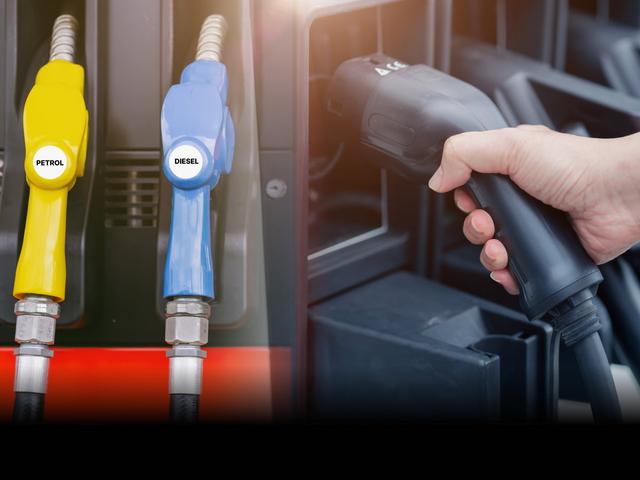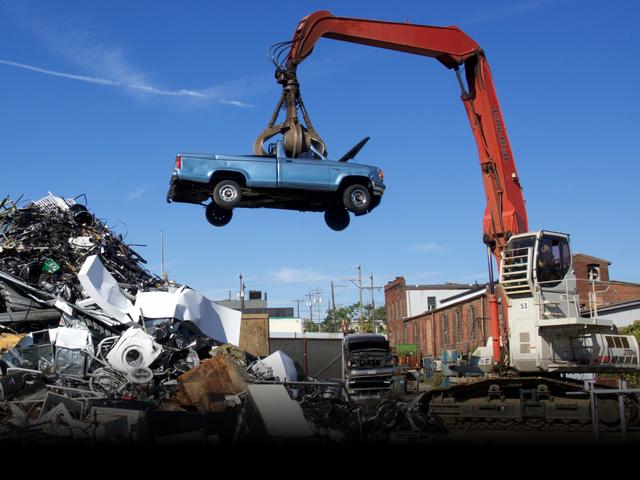In case you are moving to another state, or selling your used car to someone, it is essential to transfer car ownership, either to the new state in case of relocation, or to the new owner in case of a sale. Failing to comply with the transfer of ownership may bring penalisation, and must be avoided. If the car you sold does not get registered to the new owner, you may be held liable in case the car meets with an accident, or in worse cases, is involved in a heinous crime.
There are certain rules and protocols to follow when you transfer car ownership. The transportation departments of different states have different transport laws, rules, and regulations that you must comply with. Depending on the states involved, transfer processes may vary slightly.
It is essential to understand the step-by-step protocol and the associated documents required at each step. We will walk you through the steps and protocols so that you can have a hassle-free process. A brief summary of all the documents needed, costs related to No Objection Certificate (NOC) and Non-Migration Certificate (NMC), and a few important points to keep in mind are all provided ahead.
Documents Required for the Transfer of Vehicle Registration from One State to Another

The following table lists the necessary documents required to initiate the process of transferring car registration from one state to another.
| Individual Documents Required | |
| PAN Card | One Self-Attested Copy |
| Address Proof | One Self-Attested Copy |
| Passport Size Photographs | Two Self-Attested Copies |
| RTO Documents Required To Sell Car | |
| Form 28 | Three Copies With Chassis Imprint |
| Form 29 | Two Copies |
| Form 30 | Two Copies |
| Form 35 and NOC | One Copy With Bank Stamp On Form 35 |
| Sale Affidavit | One Copy |
| Clearance Certificate | One Copy |
| Car Documents Required | |
| RC | Mandatory |
| PUC | Mandatory |
| Insurance | Mandatory |
| Application of Insurance Transfer | Only required if insurance is to be transferred to the buyer |
| Invoice of the car | Only required if there is mismatch in the RC details |
| Additional RTO Documents Required To Sell A Car Interstate | |
| NOC for vehicle transfer to other states from the RTO in which car is registered originally | Mandatory |
| Road Tax receipt of the new state in which the vehicle is registered | Mandatory |
Procedures for Transferring Vehicle Ownership
Various scenarios and the protocols required to transfer car ownership are listed below:
Procedure to Transfer Car Ownership Within the Same State
If you are selling your car to someone in the same state, you must follow these steps:
- Two essential forms - Form 29 (Notice of Transfer of Ownership of a Motor Vehicle) and Form 30 (Application for Intimation and Transfer of Ownership of a Motor Vehicle) must be procured. You can either download these online or collect them from the Regional Transport Office (RTO).
- Fill out both forms. Ensure that all the details about the buyer and seller are accurate. It is required to fill out two copies of Form 29.
- Signature of both parties, i.e. the buyer and the seller, are required on both forms 29 and 30.
- Hand over your vehicle to the RTO for a physical inspection along with the following documents:
- Form 29 (two copies)
- Form 30
- Original Registration Certificate (RC)
- Pollution Under Control (PUC) certificate
- Valid insurance certificate
- Buyer’s proof of address
- Buyer’s passport-size photographs - Pay the applicable transfer fee and road tax.
Once you have completed the aforementioned steps, the RTO will issue a new RC in the buyer’s name once all the documents are successfully processed.
How much does it cost?
Apart from the road tax, the costs involved in transferring car ownership within the same state include a transfer fee, a smart card fee, and a postal fee. The transfer fee within the same state is usually ₹300, but it may vary from state to state.
Procedure to Transfer Car Ownership Across Different States
If you are selling your car to someone in a different state, the following steps must be followed:
- Fill out Form 28 and submit it to the vehicle’s original RTO to apply for a No Objection Certificate (NOC).
- If you have a car loan on your vehicle, you will also need a NOC from the issuing bank. This NOC needs to be submitted to the RTO along with Form 28.
- Obtain all clearance certificates from the police and National Crime Records Bureau (NCRB) to make sure no illegal activities are associated with the vehicle.
- Move the vehicle to its new state.
Apply for a New Registration by Submitting the Following Documents to the New State’s RTO:
- Form 29 (two copies)
- Form 30
- Original RC
- NOC that was obtained from the original RTO
- PUC certificate
- Valid insurance certificate
- Buyer’s address proof
- Buyer’s passport-sized photographs
- Hand over your vehicle for an inspection at the new state’s RTO
- Pay the applicable transfer fee and road tax
Once all the documents are successfully processed by the new RTO, a new RC will be issued in the buyer’s name.
Cost of Inter-State Transfer of Car Ownership
Depending on the ex-showroom price of the car, road taxes vary from state to state. You might also incur some additional expenses depending on which state the vehicle is registered to. For eg
The following table gives a breakdown of the costs involved in transferring vehicle registration across different Indian states and any additional costs that might be levied by specific states.
Transfer Costs In Different States
| STATES | NMC | NOC Cancellation | ||
| Amount* (In ₹) | Validity (In Days) | Amount* (In ₹) | Validity (In Days) | |
| DELHI | 5,000 | 30 | 5,000 | 30 |
| HARYANA | 1,500 | 7 | 3,000 | 10 |
| UP | 10,000 | 7 | 7,000 | 10 |
| MAHARASHTRA | 3,000 | 7 | – | 10 |
| KARNATAKA | 6,500* | 7 | 12,500* | 10 |
| HYDERABAD | 3,000 | 7 | 4,000 | 10 |
Additional Costs In Different States
| State | Road Tax*Petrol | Road Tax Diesel | Additional Fee* |
| Andhra Pradesh | <10L - 12% >10L - 14% | <10L - 12% >10L - 14% | +2% RTO tax if you are buying the second vehicle in AP |
| Chandigarh | <20L - 6% >20L - 8% | <20L - 6% >20L - 8% | – |
| Delhi | <6L - 4% 6-10L - 7% >10L - 10% | <6L - 5% 6-10L - 8.75% >10L - 12.5% | Municipal corporation parking charges may apply <4L –₹2,000 >4L – ₹4,000 |
| Haryana | <6L - 5% 6-20L - 8% >20L - 10% | <6L - 5% 6-20L - 8% >20L - 10% | Regional charges may apply as per the village/ town |
| Karnataka | <5L - 15% 5-10L - 16% 10-20L - 19% >20L - 20% | <5L - 15% 5-10L - 16% 10-20L - 19% >20L - 20% | <5L – 15% 5-10L – 16% 10-20L – 19% >20L – 20% |
| Maharashtra | <10L - 9% 10-20L - 10% >20 - 11% | <10L - 11% 10-20L - 12% >20 - 13% | For CNG - <10L – 5% 10-20L – 6% |
| Punjab | 6% for all vehicles | 6% for all vehicles | – |
| Uttar Pradesh | <10L - 8L | <10L - 8L | Additional charges may apply |
Procedure to Transfer Car Ownership of a Deceased Person’s Car
To transfer car ownership of a person who has passed away, follow the steps given below:
- The deceased person's death certificate will be required.
- Next, to establish yourself as the rightful heir to the vehicle, obtain a legal heir certificate from a local municipal authority.
- Write an affidavit that acknowledges you as the legal heir and declares the transfer of ownership of the vehicle.
- Fill out Form 31 (Application for Transfer of Ownership in the Name of the Person Succeeding to the Possession of the Vehicle) with the correct details of the deceased owner and the legal heir of the car. You can download this form online or collect it from the RTO.
Submit the Following Documents to the RTO:
- Form 31
- Original RC
- Death certificate
- Legal heir certificate
- Valid insurance certificate
- PUC certificate
- Legal heir’s proof of address
- Legal heir’s passport-sized photographs
- Pay the applicable transfer fee, which is usually ₹300, but may vary from state to state.
- A new RC will be issued in the legal heir’s name once all the documents are successfully processed by the RTO.
Procedure to Transfer Ownership of a Vehicle Purchased in Public Auction
To transfer ownership of a car purchased in an auction, follow the steps given below:
- Contact the auctioning authority and get the auction certificate
- Fill out Form 32 (Application for Transfer of Ownership in the Name of the Person Purchasing the Vehicle in a Public Auction) with the correct details of the auction and the buyer. You can download this form online or collect it from the RTO.
- Submit the following documents to the RTO:
- Form 32
- Original RC
- Death certificate
- Legal heir certificate
- Valid insurance certificate
- PUC certificate
- Buyer’s proof of address
- Buyer’s passport-sized photographs
- Hand over your vehicle for an inspection at the RTO.
- Pay the applicable transfer fee. The fee is usually ₹300 but varies from state to state.
The final documents are then processed by the new RTO and a new RC is issued in the buyer’s name.
How Much Time Does the RC Transfer Process Take?
It takes around 60 to 90 working days for the entire RC transfer process to be completed. This turnaround time can vary depending on the completeness and accuracy of the documents provided, efficiency of the local RTO, public holidays and a few other factors like backlog and need for additional verifications.
How to Check RC Transfer Status?
A step-by-step guide to check your RC transfer status is given below:
- Visit the official website Parivahan Sewa.
- Go to ‘Online Services’ and select ‘Vehicle-related Services.”
- Use the dropdown menus to select your state and RTO.
- Click on the link option that says ‘Know your application status’.
- Enter your application number and any other information that is asked.
- Once you submit this, you will be able to see the current updated status of your RC transfer.
Important Points to Remember When Transferring Your Car Registration
Now that you are aware of the processes to transfer car ownership, here are a few vital points to keep in mind:
Remember that Taxes and Formalities Differ from State to State
Different states in India have different tax structures and formalities that need to be complied with for a successful car ownership transfer. These may include green tax, motor tax, or any other specific local tax. For example, in Delhi, additional municipal corporation parking charges may apply on your vehicle. Make sure you are fully familiar with the specific taxes and protocols of the new state. You can check all the information here. Ensure road tax compliance.
Road tax also varies from state to state based on the rules and regulations of that state. Check out the road tax requirements here to ensure complete compliance.
Know your Options for your Registration Number
You may be able to retain the original registration number of the vehicle, depending on availability and the decision of the RTO. Get in touch with the RTO to fully understand the procedures and rules for getting the number you want.
Adhere to Timelines
Ensure that you finish all the steps for the transfer process within the given timeline. This means submitting completed and error-free documents, paying applicable fees, and completing any other additional verification, all within the designated timeframes. Delays on your part during the transfer process may lead to legal complexities or penalties.
Keep in Touch with the RTO
For any guidance, queries, or clarifications always seek out the local RTO of both the states, new as well as current. They will provide correct and timely information, clear any doubts, and advise you on any specific requirements applicable to you.
Update Insurance and Road Tax Details
Upon completion of the ownership transfer, ensure that the vehicle’s insurance policy is updated with the new registration information. Connect with your insurance provider to get the necessary changes made, and do not forget to get a revised insurance certificate updated with the new information.
Know your NOC Validity
The RTO of the current state issues an NOC that normally has a validity of three to six months, depending on the state. Make sure that your transfer process and registration in the new state is completed within these timeframes. Any delay beyond this time will require you to apply for a fresh NOC.
In conclusion, the process to transfer car ownership in India is quite straightforward, although certain aspects may vary depending on the state. If you fill out your forms accurately, submit complete and correct documents, and adhere to the rules and timelines, you can experience a very smooth transfer process.
CARS24 RTO Services
RC transfers can be a stressful and frustrating experience. If you are asked for a party peshi, you may have a challenging day ahead of you. Party peshi is a process by which the transport department verifies that you are legally allowed to sell your car. For a party peshi, you must report to the RTO with all related documents and forms. Long queues and slow processing can make this an exhausting exercise.
CARS24 provides professional, end-to-end RC transfer services that will eliminate all the stress you are likely to encounter during the transfer process. We manage your paperwork, monitor your appointment dates, and even provide at-home assistance, whenever possible. Where other agents charge almost ₹7,000 for just the paperwork, you can avail of our complete RC transfer services for as low as ₹3,000.
FAQ
Q. How can I check my RC status on Parivahan?
Go to the Parivahan website. Under Online Services, select ‘Vehicle-related Services’. Enter your state and RTO and click on ‘Know your application status.’ Provide the registration number of the vehicle and other details to view your RC status.
Q. What should I do if I lose my RC?
If your RC is lost, you must first file an FIR. Then, apply for a duplicate RC from the same RTO where the vehicle was initially registered. Along with the application, you need to submit the relevant documents, address, ID proofs, and a copy of the filed FIR.
Q. What happens if someone fails to transfer their RC to the RTO of the new state?
In the event of failure to transfer RC to the new state, the owner may face legal issues in addition to a fine of ₹500. Furthermore, the car may be deemed illegal in the new state.
Q. What happens if the vehicle has an outstanding loan?
If there is an outstanding loan on the vehicle, you will have to get an NOC from the issuing bank before the transfer of ownership. The NOC is an assurance that the financing bank has no objection to this transfer.
Q. Do I have to inform my insurance company about the vehicle ownership change?
Yes, your insurance company needs to be notified to transfer the policy to the new owner’s name and update their records.
Q. How long does the entire process to transfer car ownership take?
The entire transfer process can take anywhere between 60-90 working days. It depends on several factors like public holidays and the completion of paperwork and formalities.
Q. Is it possible to transfer car ownership online?
Yes. The Parivahan website allows you to easily initiate the transfer process online. However, for document verification and car inspection, you have to physically visit the RTO.



.jpg&w=3840&q=50)
.jpg&w=750&q=50)












.jpg&w=828&q=75)

-(1).jpg&w=828&q=75)











.jpg&w=640&q=75)




